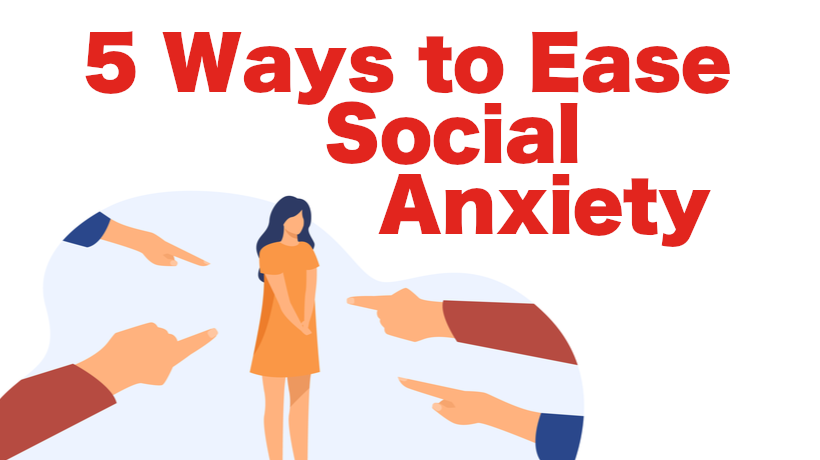Many people get nervous on occasions like giving a speech in front of a class or interviewing for a new job. But social anxiety is more than shyness or occasional nerves, it is an intense fear of certain social situations. These situations may be so frightening that the person will get anxious thinking about them and do everything to avoid them. This disturbs a person’s way of life.
According to Melinda Smith, M.A., and Jeanne Segal, Ph.D., many people struggle with these fears but the situations that trigger the symptoms of social anxiety can be different. Some common triggers include meeting new people, public speaking, using public restrooms, making phone calls, and attending social gatherings. There are ways to help reduce anxiety and reduce symptoms, so it doesn’t dominate your life.
Challenge Your Negative Thoughts
Negative thoughts are what contribute to fear and anxiety. Challenging these thoughts can help reduce social anxiety and help you get into a different mindset before social situations. According to Smith and Segal, the way to begin is by identifying the automatic negative thoughts that underlie your fear of social situations. Then analyze and challenge the thoughts. Ask yourself questions if the negative thoughts are worth worrying about. Eventually, you will be able to replace them with realistic and positive ways of looking at social situations.
Focus on Others Instead of Yourself
It is hard to stop the constant thoughts and worries when you are in a situation that makes you anxious. It is common to start focusing on ourselves and how others are perceiving us in a negative light. Social anxiety can cause you to think that everyone will be looking at you and judging you, but that is not the case. According to Chole Brotheridge, a hypnotherapist, coach and author, it can help to start focusing on other people. This does not mean focusing on what they think of you, but on trying to engage in the conversations and making a connection. Let go of the idea of having to be perfect and instead try to enjoy the moment.
Control Your Breathing
According to Brotheridge, the physical symptoms of anxiety include increased heart rate, pounding chest, dizziness, and muscle tension. Taking a moment to slow down and control your breath can help reduce the symptoms of anxiety. Practicing breathing exercises can be helpful when you find yourself anxious in a social situation. Take a seat, get comfortable and inhale slowly through your nose for 4 seconds. Then hold in the breath for 2 seconds, and exhale slowly through your mouth for 6 seconds. Continue until you feel comfortable enough to go back to what you were doing, only you know your mind and body.
Try to Be More Social
Another effective way of challenging your fears and overcoming social anxiety is actively seeking supportive social environments. Smith and Segal suggest that finding these environments is a good way to start interacting with others in a positive way. You can take classes on social skills and assertiveness training, where you will find people that could be dealing with the same struggles as you. You can volunteer to do something you enjoy; it will give you an activity to focus on while meeting like-minded people. It is important to work on your communication skills for when you do interact with others in a social setting you feel more confident in being able to have a conversation.
Adopt A Lifestyle That Reduces Anxiety
According to Timothy J. Legg, Ph.D., lifestyle changes may have a positive impact on anxiety in general. If you are to reduce your overall anxiety, it can help you cope with social settings. Incorporate into your daily regular physical activity because exercise increases your brain’s production of endorphins, which are feel-good hormones that regulate mood and anxiety, says Legg. Avoiding caffeine and getting plenty of rest can also be beneficial to reducing anxiety. You can also lessen your anxiety by knowing your limits. Having too much on your plate, and not being able to say no to certain social situations can harm you in the end.



